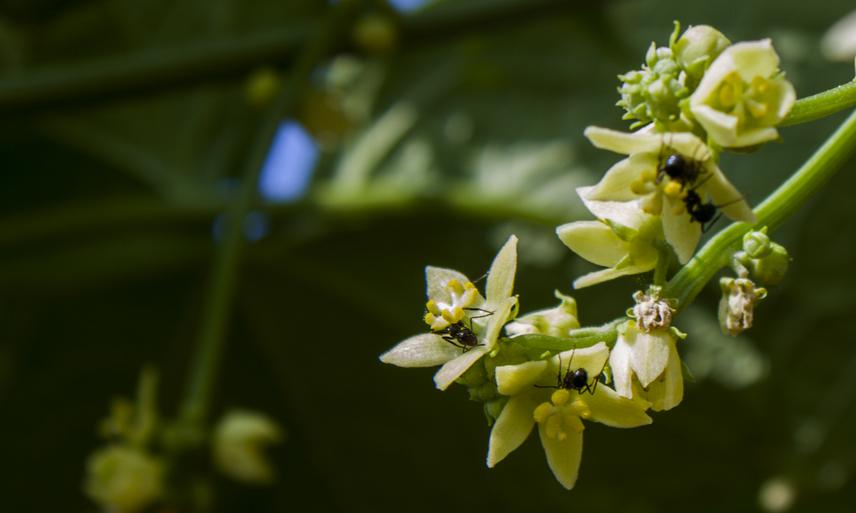Ronita Mukherjee
The aim of the study is to look at the role of urban pressure in affecting the land use as well as management of the farming practices and its consequences on the pollination service along the peri-urbanized areas of Bangalore, India. In short, the study will examine the effects of rapid urbanization on pollination services that peri-urban ecosystems provide, to support the city markets of Bangalore.

Ants- the helpers or the robbers.
Pollination service, although an indispensable ecosystem service, very little is known about the ecological functioning behind it. In Indian scenario, the situation is even more sombre due to lack of studies in this field. As a result, there exist huge lacunae in knowledge transmission from the crop promoters to the farmer community.
Anekal, one of the growing towns in the peri-urban region of Bangalore, produces majority of the vegetable crops (of gourd family), pollinator-dependent in nature, to meet the city’s demand. But our reconnaissance survey revealed that there is little or no knowledge of pollination process among the farmers in this region. Results of this study will help the farmer community to get acquainted with this obligatory plant-pollinator interaction crucial for the agro-ecosystems. Study of the land use trends of this region will help to determine the sustainability of pollination service in the future.
The study will also try to demonstrate the importance of wild/semi-natural areas in provisioning pollination service to the crops through ecological and spatial analyses. Bannerghatta National Park being juxtaposed with Anekal (vegetable farming area) creates an ideal setting to understand the relative importance of surrounding natural areas (matrix quality in terms of pollinator-friendliness) in agricultural dynamics. Anekal being located at the urban-rural interface will help to discern the urban role in impeding pollination system both at temporal and spatial scales. All these information will help in developing predictive model demarcating potential areas of pollination service along with adaptive farming techniques and policy implications for sustainable agriculture.
Thus the overall objective of the proposal is to assess the effect of urbanization on land use vis-à-vis management (on farm practice) and its consequences on pollination of the peri-urban area of Bangalore, India.